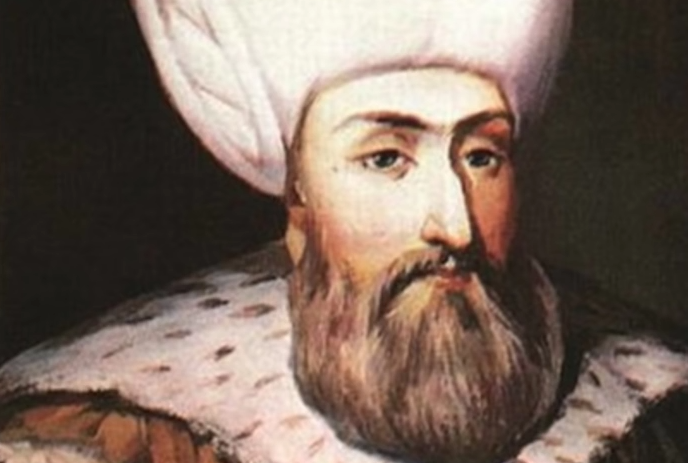Sultan Suleiman the Magnificent
He was born in 1494 and died in 1566. He was the tenth ruler of the sultans of the Ottoman Empire. He was the number eighty of the successors of the Muslims. He was the second man to claim the title of Commander of the Believers after the Osman, The Ottoman Empire from the beginning of November 6, 1520 until he died, which is considered the most sultans of the Ottoman Empire to remain in power.
Sulaiman al-Qanuni was widely recognized in the sixteenth century by the European community, where he held the summit in the Islamic, military, political and economic state at the time. He had many achievements in the reform of the Ottoman judicial system and in the expansion of the Ottoman Empire. His reign witnessed great developments at all levels in art, literature and architecture, until a period of wisdom was considered the Golden Age of the Ottoman Empire.
And proficient in several languages are Arabic, Farsi, Serbian and geographical language.
Origins:
Sulaiman ibn Sulayem was born in Trabzon on the shores of the Red Sea to a mother called Aa'a Hafsa Sultan. At the age of seventeen, he took over the post of governor of Feodosia and Sarukhan. Shortly after that, he became the guardian of Aderna. At the death of his father Selim I, he took power in Constantinople as the Ottoman sultan In 1520, when he was thirty-nine years old, he went to Constantinople to study science, history, literature, jurisprudence and military tactics in his schools. He was accompanied by Ibrahim Pasha, who later became Al-Sadr Al-Azim, where he was his close friend.
Achievements after taking office:
He took power on September 22, 1520, after the death of his father. He began to issue his political directives. He succeeded in imposing the prestige of the Ottoman Empire and stood firm against any Wali who aspired to independence, believing that his young age and lack of experience would enable them to fulfill their desires. The character of Sultan Sulaiman proved to them the opposite of what he hoped for. He destroyed many of the rebel rulers in that period. He formed an alliance with France's King Fronsois I, with whom he collaborated on the invasion of Italy, but the king's fear of accusing him of apostasy of Christianity prevented the Ottoman Empire from taking control of Italy .
Suleiman Ottoman and his army managed to enter many wars that led to the conquest and control of many countries. He succeeded in opening Belgrade in 1521, Rhodes Island and parts of Hungary, Bodhist, which made it an Ottoman province. He also succeeded in opening Libya and Tunisia Eritrea, Djibouti and Somalia, all of which became under the control of Ottoman influence.
On the other hand, the Ottoman Empire witnessed a significant cultural development during the reign of Sultan Sulaiman, because Sultan Sulaiman was educated and loved literature, especially poetry, where he had poems called "Mahbi". He was good at writing as he was fond of construction and construction. And built many great facilities such as fortresses, strongholds, mosques, tanks and cathedrals throughout the country under his command.
The Law of Sultan Suleiman:
Sultan Suleiman was known for setting the laws governing life in the Ottoman Empire. Before he took power, the law relied on the Islamic sect as a total adoption. However, it showed the law of Solomon, which covered all legal areas. Before and after its screening one law was issued and it was keen to be compatible with Islamic law. The law was then called the Ottoman law or the law of Sultan Sulaiman. This law is still in effect until the thirteenth century AH, Legal "status.
his personal life :
Sultan was known to have had a Russian wife origin, called "Roxlan" where she was captured in the century and gave it to the Sultan who married her later, was said to be a Russian Jew and was a beauty, was known to have been allowed to intervene in the affairs of the Ottoman Empire, The Jews who were expelled from Andalusia were allowed to remain in the Ottoman Empire and were called "the Jews of the Duma" and played a major role in the fall of the Ottoman Empire.
As mentioned in the Western references that there is no proof of the fact that the sanctity of Sultan was paving the way for her son Salim to take over the throne of the Sultanate after his father was plotting with the help of her husband's husband, the great Sadr "Rustam Pasha," took the latter opportunity to travel Sultan in one of the military campaigns that Told him that his son Mustafa wanted to rebel against his father as his father did with his grandfather, which led to the Sultan's entreaty of his son in his tent and killed him immediately.
Fatuah: Sultan Suleiman the Magnificent died during the siege of the city of Sectwar in 1566 after falling from the horse where he died at the same moment.



